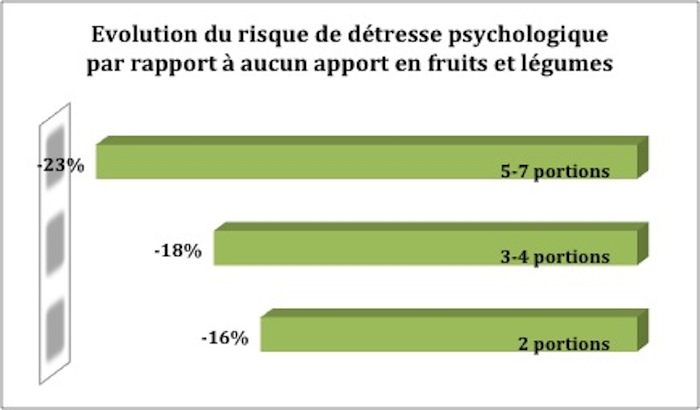Eating more than 2 servings of vegetables each day is associated with a reduced risk of anxiety and depression. The effect is particularly marked in women.

A healthy mind in a healthy body. The adage is well known. Food should probably be the third pillar of this quote. Because a diet rich in fruits and vegetables is associated with better mental health. This is shown by the University of Sydney (Australia). She publishes, in the BMJ Open, a study that links the consumption of vegetables to psychological distress.
The study in question followed 60,000 Australians over the age of 45 for almost three years. Using precise questionnaires, the eating habits and mental health of the participants were monitored. The results are clear: compared to no or very few vegetables, consuming 3 to 4 servings per day reduces the risk of anxiety or depression by 12%. In women, the effect of vegetables is even more marked. Compared to no intake, 3 to 4 servings reduce the risk of psychological distress by 18%.

A goal little achieved
“A reasonable intake of vegetables is associated with a lower incidence of stress,” summarizes Dr. Melody Ding, who signs this work. A moderate intake of fruit alone does not seem to provide significant benefit. The researchers now plan to study the threshold above which the benefits of vegetables are observed. Such work could also be used to explain how these foods differ from others.
But as with every study of this type, the problem of compliance with the recommendations arises. In France, for example, 5 daily portions of fruit and vegetables are recommended to the population. But in fact, only 8% of French people manage to achieve these goals. Beyond encouraging studies, it is therefore necessary to define how to change daily eating habits.
.
















